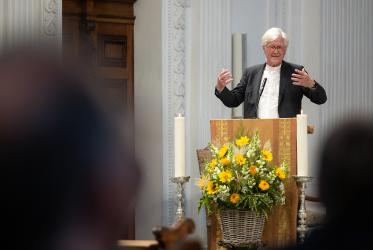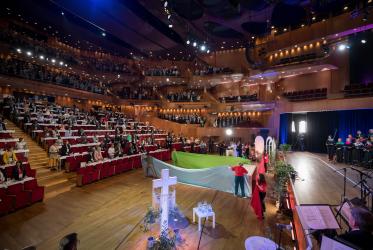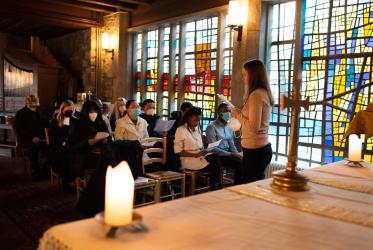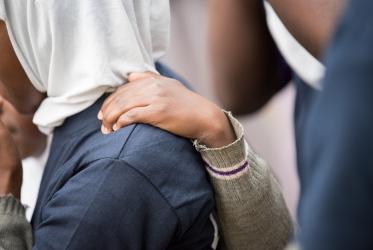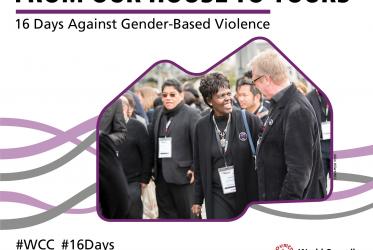Displaying 1 - 20 of 45
10 October 2023
Bible studies bring ways to learn how Christ’s love moves us
06 September 2022
WCC stands in solidarity with victims of major flood in Brazil
17 February 2022
Scottish and UK religious leaders call for urgent climate action
20 September 2021
Morning Prayer for Monday, 29 March 2021
29 March 2021
New student body at Bossey Ecumenical Institute “a source of joy”
14 September 2020
At Bossey, ’I could feel the belongingness’
17 June 2020
Ecumenical young trailblazers
15 August 2019
